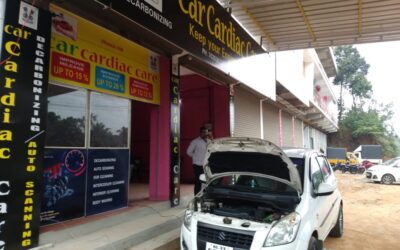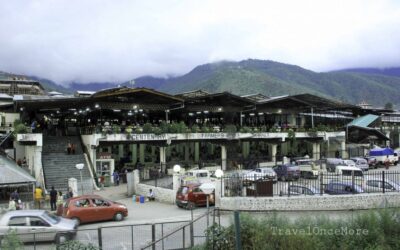Bhutan’s Happiness Theory: Food Vs Hospitals
Traveler Vs Tourist.
An international traveler always likes to get a deep insight into the unique culture and lifestyles of his/her destination country. The land’s historical places or remnants of heritage alone will not quench one’s thirst for knowledge. A passionate traveler becomes happy only after he interacts with the common men of the place, visits their houses, eats the indigenous food, and becomes one of them in every respect. This is what makes a traveler different from a tourist. And, the same was my aspiration too when I traveled to Bhutan, the small country of great wonders and an exceptional lifestyle. If you asked me to pen the highlight of Bhutan’s approach to life, I would point out Bhutan’s Happiness Theory of food markets Vs hospitals, which has positive implications for the country’s health status.
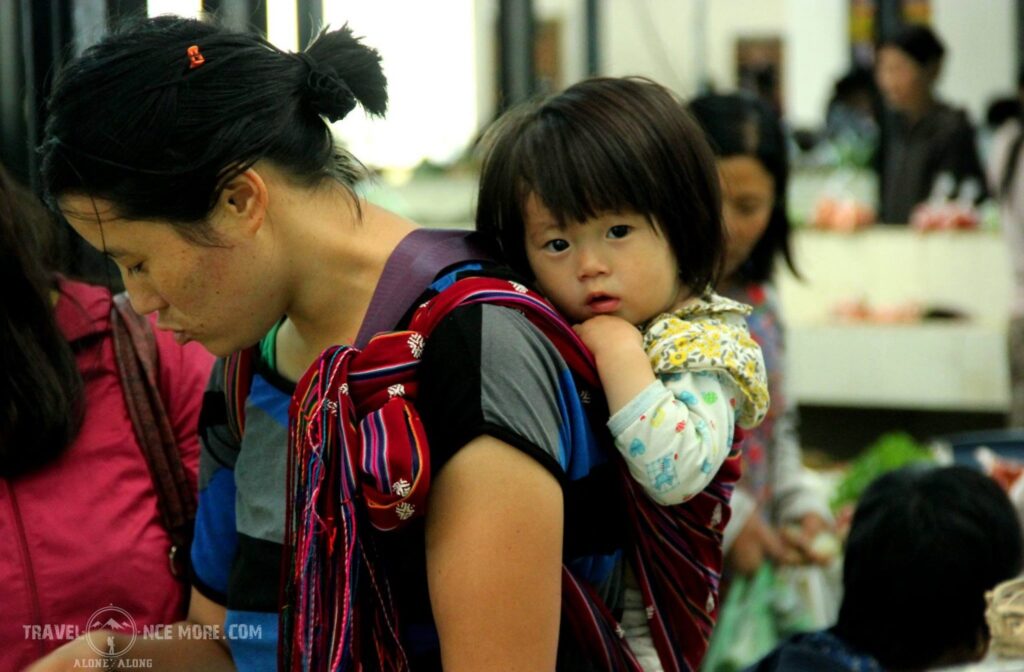
Bhutan: The Land of Dragon
The myth and image of the Dragon is a frightening thing. However, Bhutan, the land of the dragon is one of the most peaceful countries that have a comparatively higher standard of living. A remarkable thing about this nation is that Bhutan is the first country that experimented with the idea of Gross National Happiness (GNH) through its Happiness Theory and brought forth promising results in front of the whole world. Do you know, Bhutan is a country that does not have signal lights on roads? Also, it has become a model for profit-driven, developed countries by strictly employing a ban on the use of pesticides.
Bhutan’s life expectancy is 100 plus?
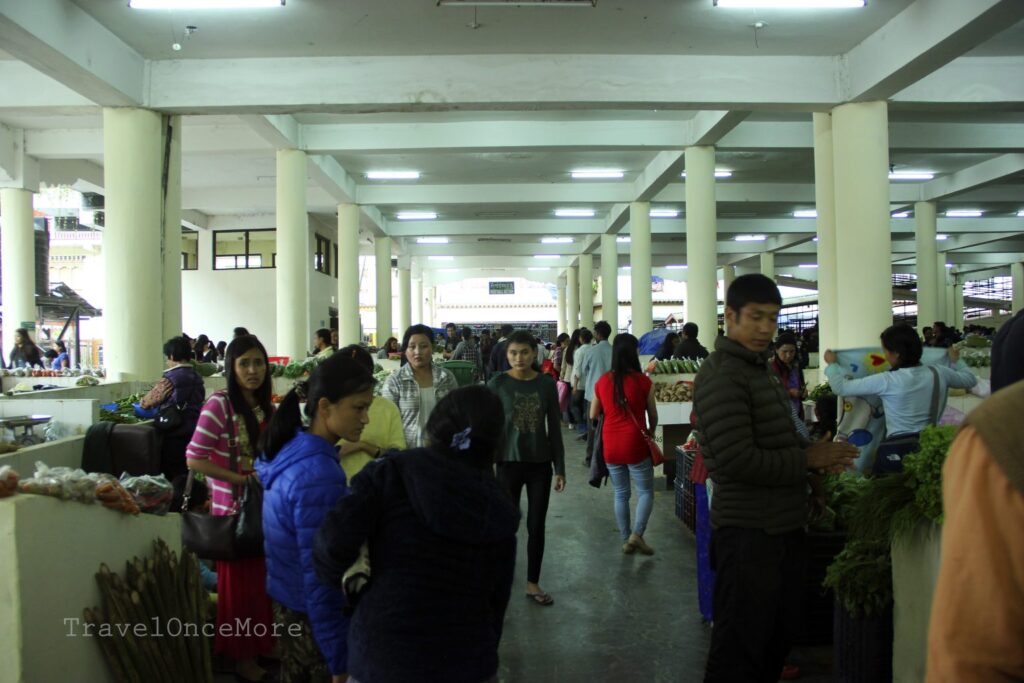
The primary objective of the nation is nothing other than its people’s health, happiness, and wellbeing. Therefore, the government or the general public are not ready to compromise on such values. The foresightedness of Bhutan’s earlier rulers is evident in many aspects. For example, the older generations of the land planted and grew thick forest all along its boundaries to resist the air pollution that would be caused by India, China, and Nepal.
Pesticide-free organic farming and fresh air are said to be the major contributing factors to Bhutan’s higher rate of life expectancy. I could see several elderly, agile individuals who have already crossed 100 as I traveled through villages. As you know, I’m from a small city that has more than ten hospitals. To my surprise, I could see only one government hospital in the whole Thimphu, the capital city of Bhutan.
Bhutan’s Happiness Theory & Food Culture
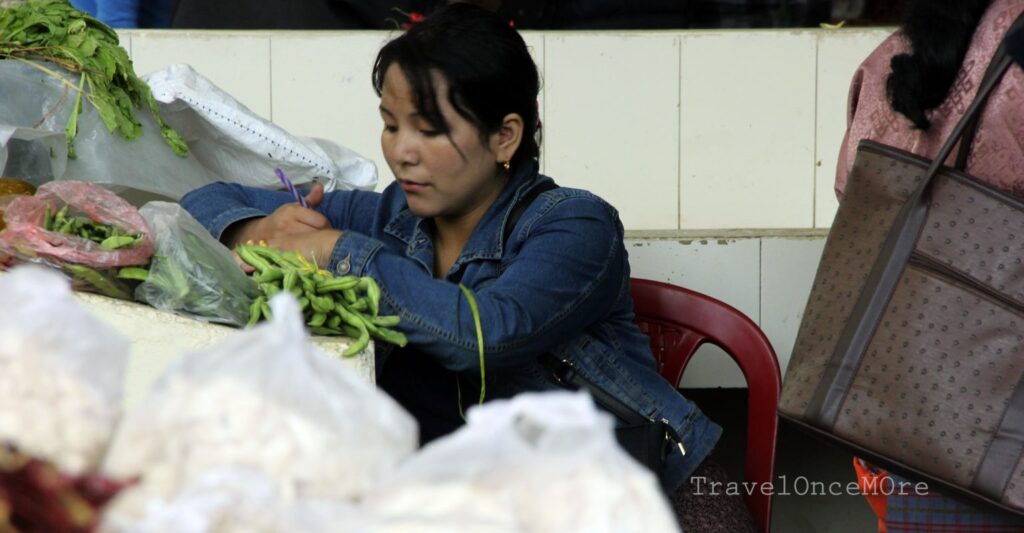
You can get purely pesticide-free fresh vegetables and fruits from any local street market in Bhutan. It’s hard to find desserts that are common in other countries. Their main food items involve cheese, raw-honey, fresh fruits and vegetables, and rice of multiple types.
A few of the important food items are listed below
- Boyo Zaw (puffed rice)
- Zaw (roasted rice)
- Colorful Mekhu (Crispy rice crackers)
- Kabchi (roasted, ground wheat)
- Tengma (roasted, flattened maize
You can see all these products and even much more in Centenary Farmers Market in Thimphu.
Centenary Farmers Market
One should visit Bhutan’s local market to know the distinctiveness of its dietary richness and diversity. Centenary Farmers Market in Thimphu is such a market where the farmers themselves exhibit and sell their farm products. If you drive ten minutes down from the Clock Tower of Thimphu, you can reach this market. However, if you are familiar with the hustles and bustles of Indian markets, Bhutan’s markets will overwhelm you with their silence and imposing appearance.
Based on Bhutan’s Happiness Theory, the market is free from all sorts of pollution, and you will not see or smell a decayed item there. Also, you will not see anyone bargaining. Instead, you will see how people buy what they require and go home calmly. Farmers sell their products directly at reasonable prices.
Centenary Farmers Market is a double-storey building with more than 400 stores. On the first floor, you will mainly see organic items like spices, traditional yeast, local wine, honey, dry meat, cherry pepper, dried cheese, and dry fruits. On the ground floor, you can buy all sorts of pulses, cereals, and other groceries. Centenary Farmers Market has an adjacent fish, meat market too. Pork is the favorite meat for almost all Bhutanese.
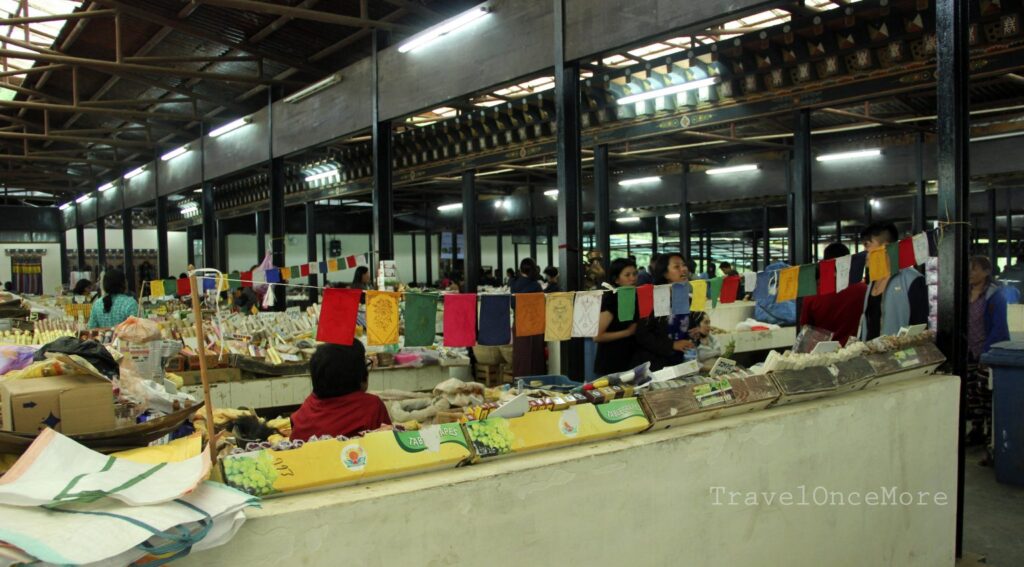
In Bhutanese families, mostly women manage monetary matters and business affairs. I found women and farmers who in their free time describe Bhutanese food culture and agricultural lifestyles to foreign visitors. It is customary that every Thursday and Friday farmers from across the state come with their products and camp out at the Centenary Farmers Market until Sunday. During these days, they will run splendid business. Therefore, it is advisable for a visitor to go to this market during the weekend because, at that time, the market will have all kinds of products in abundance.
Will Bhutan’s Happiness Theory Work in India?
One can see similar markets in other Bhutanese cities including Paro, Phuntsholing, Punakha, and Tsirang. The most notable thing about all of them is that they are secured from corruption, adulteration, and any kind of malpractices. India can learn lessons from Bhutan’s food markets and agricultural lifestyle that work on Happiness Theory. Such markets are possible in India too through the collective efforts of farmers, officials, and traders.
Every Indian that goes to Bhutan should visit Centenary Farmers Market in Thimphu. I believe that the very market can talk to you many more things than what I explained here. Bhutan’s Tigers Nest Monestry is another popular location that would entertain you. You may learn more things from the official website of the Tourism Council of Bhutan
Akhil Sasidharan
Akhil Sasidharan is a passionate full-time traveler, vlogger, blogger, and photographer. He belongs to Kerala, God's Own Country, the south-most state of India.

